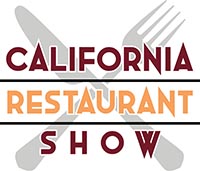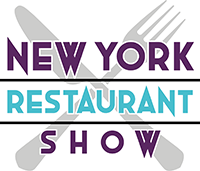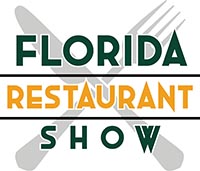
By Sara Perez Webber
Above & Beyond Catering
abovecatering.com
As demand for drop-off catering picks up, many restaurants and full-service caterers are launching or expanding dedicated divisions to meet the demand. San Francisco-based Above & Beyond Catering, however, began drop-off catering first, in the early days of its founding in 2005. It expanded to encompass a separate full-service department—Fork & Spoon Productions—in 2016.
Above & Beyond—co-owned by Chef Anthony Barr and his wife, Anna Intertas-Barr, a former pastry chef who now manages sales and marketing—landed a big corporate client during its first year of business, catering lunch for a company three days a week for 100 employees. Since then Above & Beyond’s client roster has swelled to include numerous corporate clients, especially near its home base in San Francisco’s Financial District. For one big customer, a tech company, it caters breakfast, lunch and happy hour twice a month for new-hire groups of 200-plus.
In San Francisco—where tech companies are known for feeding their employees in-house to keep them productive and happy—the competition is fierce. “Everybody is a foodie in San Francisco, and there are so many restaurants we have to compete with,” says Intertas-Barr. One advantage, she says, is her company’s ability to feed large groups, which many restaurants can’t do. Then there’s the competition from other drop-off caterers as well as third-party companies that arrange deliveries and meal programs, such as Postmates and Cater2Me.
“We’re always challenged to find what we can do for added value,” says Intertas-Barr. Instead of using disposable ware, for example, Above & Beyond sets up drop-off meals with linens, china, white platters and chafing dishes, changing linen colors and décor to match the season or holiday. “A lot of our clients like that,” she says. Intertas-Barr also notes the longevity of many Above & Beyond employees, who have established long-term relationships with their counterparts at clients’ offices.
“We’re not order-takers here,” she says, adding that the sales staff is trained to ask clients, “What is the goal of this event?” If the company wants to impress potential clients, or has a short amount of time for their employees to eat, for example, Above & Beyond will take those considerations into account when planning and making suggestions. “We offer guidance,” she says. “We get calls from people who’ve never ordered catering before, so it’s also about educating them.”
For drop-off breakfast catering, grab-and-go breakfast burritos are a top seller for the company, with Above & Beyond offering such varieties as steak and eggs, beans and eggs, and Soyrizo (a vegan chorizo alternative) to please a variety of tastes and preferences. Taco bars, poke bars and themed buffets are also popular; a recent Caribbean-themed Fat Tuesday menu, for example, featured such items as spicy pineapple coleslaw and Jamaican jerk grilled chicken, while the menu themed to St. Patrick’s Day offered green eggs and ham for breakfast, and such options as Irish stew and beer-battered fish and chips for the lunch buffet.
Achieving $4 million in sales last year, Above & Beyond’s drop-off catering continues to grow, both with new and existing clients. “We have one client who’s exploring offering dinners in-house, because not everyone works 9 to 5 anymore,” says Intertas-Barr. Marketing mostly through its website and social media—both handled by Nuphoriq—the company also relies on word-of-mouth recommendations and its branded vehicle wraps for name recognition. Intertas-Barr sometimes peruses Indeed and Craigslist to see which companies offer catering to their employees, so she can pitch Above & Beyond to them.
The company also aims to make its mark through its service style. “It’s not just dropping off at the door,” she says. “It’s the service we provide in addition to the food. How do we make it memorable? We have to be above and beyond in everything that we do.”
Alchemista
alchemista.com
When Christine Marcus was a graduate student at the MIT Sloan School of Management in Cambridge, Mass., she wasn’t impressed by the food brought onto campus for students. “We were at the school around-the-clock and they were feeding us, but the meals and snacks weren’t anything special,” she says.
So Marcus and a classmate, who was an experienced restaurateur, dreamed up a business concept—connecting restaurants and food trucks looking for catering opportunities with employers looking to, as Marcus puts it, “serve their staff creative and extraordinary food in the workplace.” Based on that idea, Alchemista—a subscription corporate catering service in which clients commit to daily, weekly or monthly meal deliveries—was founded in 2012.
In Boston, Alchemista’s clients include dozens of tech, startup, healthcare and pharmaceutical businesses, and it works with more than 100 restaurants. The company has a smaller but growing presence in Washington, D.C., as well. In all, Alchemista handles the planning, delivery and set-up of about 30,000 meals per month, with an average order size of 120 people.

The majority of Alchemista’s clients utilize its catering services on a weekly basis, and Alchemista staffs each meal or event with one to three Client Attendants, who help with delivery, set-up and post-event clean-up. The company also plans themed meals for its clients “in an effort to make every day at work feel like a holiday,” says Marcus. Examples include super hero-themed parties with comic-inspired desserts and employees in costume; “Luau Lunches” with office décor and a menu full of authentic Hawaiian fare; and Make-Your-Own-S’Mores spreads for Valentine’s Day. “In terms of events, especially around the holidays, we find that our clients tend to focus their celebrations around secular traditions as opposed to specific religions,” notes Marcus. “One of our most popular themes in recent years has been the all-encompassing, Seinfeld-inspired Festivus feast, highlighting and showcasing various fall and winter motifs.”
Alchemista will also provide branded treats to customers who request them. The customized gourmet sweets—known at the company as “edible swag”—celebrate company culture with such goodies as QR Code Oreo Cookies that can link to any website when scanned with a smartphone; biscotti with corporate team photos and/or logos; and edible post-it notes that can be written on with a pen with edible ink.
While companies sometimes splurge on such treats—as well as the occasional fast-food meal or favorites such as chicken and waffles—for the most part they’re requesting “better-for-you” meals. “Employers are paying to feed their staff to be productive and high-functioning, and access to healthy food at work is hugely predicated upon that,” says Marcus. “Some examples of more healthful menus we’ve created with our restaurant partners include multiple salad bar options; poke bowls; sushi spreads; build-your-own grain bowls; and build-your-own breakfast yogurt parfaits and oatmeal bowls.”
In the same vein, Alchemista is gearing up to provide more healthy options to its customers by establishing relationships with farmer’s markets and privately owned farms. “We’re eager about the prospect of collaborating with like-minded, hard-working people within the food industry to help them spread their products to new audiences via corporate catering,” says Marcus. The company also recently launched Alchemista ONE, a one-time, one-click online ordering platform for companies placing smaller orders.
“We look forward to growing our business in synchronization with the evolvement of the food industry itself,” says Marcus. “As the future of food will almost assuredly continue to revolve around technology in an effort to address the need for convenience, people will look for concierge-style services to simplify their busy lives.”
The Classic Catering People: Classic To Go
classiccatering.com
During the economic recession of the early 1990s, The Classic Catering People—a full-service catering company based in Owings Mills, Md.—noticed that its corporate clients still wanted a fine-dining experience, but without elaborate displays and lavish touches. Responding to their clients’ need for pared-down catering—and making a move that would pay off for decades to come—the company launched Classic To Go in 1992, diversifying the business with a drop-off division.
“Classic To Go has grown steadily and significantly over the past 26 years,” says Harriet Dopkin, partner/president at The Classic Catering People. “In 2018 alone, we filled nearly 4,600 orders. Our growth has not only been in business, but also in relationships that we have established through the personal care of our clients. Our main focus has always remained creating connections with our clients and providing them with an intimate, caring relationship that makes every event special.”

“We are constantly changing our menus, but our most popular items are crab cakes, seasonal salads and holiday-specific items,” says Dopkin. “Our house-made bakery items are also popular, from our Pimlico cake [a yellow sponge cake layered with vanilla Bavarian cream, and finished with chocolate fudge icing and dark chocolate curls] to our seasonal fruit pies. Tastes are always changing, but over the past few years we’ve seen a significant increase in requests regarding dietary needs and preferences, including gluten-free and vegan menus, as well as locally sourced, organic and seasonal food items.”
While some drop-off catering clients utilize their own china, most request disposables, says Dopkin. Classic To Go’s high-end, non-branded, eco-friendly disposables are made of palm or bamboo. The Classic To Go boxed and brown bag lunches are branded with customized labels. For an additional fee, set-up and serving staff are available to help maintain buffets and perform other food-related tasks.
Recognizing that part of the appeal of drop-off catering is its convenience, the company continues to enhance the ordering process to make it as easy as possible. Online ordering is now available 24/7 for customers who wish to place orders during nontraditional business hours, for example. The same kitchen staff prepares the company’s full-service and drop-off catering, with at least three chefs expediting the Classic To Go food.
The company gets the word out about Classic To Go through marketing—such as emails and social media—repeat business and building relationships, mentioning the division during full-service client visits, for example. Says Dopkin: “We expect drop-off catering to continue to grow.”










